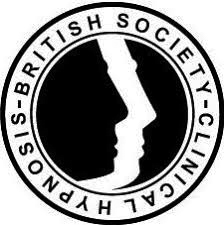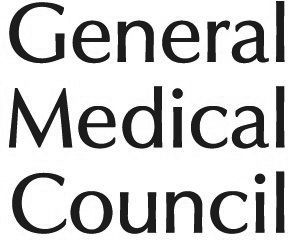Dr Caroline Houlihan-Burne, Clinical Hypnotherapist
Dr Caroline Houlihan-Burne
Clinical Hypnotherapist
Dr Caroline Houlihan-Burne MB BS MRCGP DCH DRCOG MDCH BSCH (Assoc.)
Clinical Hypnotherapist
Dr Caroline Houlihan-Burne
Clinical Hypnotherapist MB BS MRCGP DCH DRCOG MDCH BSCH (Assoc.)

Make an appointment
Address
-
London Digestive Centre
41 Welbeck Street, London, W1G 8DU
-
The Princess Grace Hospital
42-52 Nottingham Place, London, W1U 5NY
-
London Digestive Health
41 Welbeck Street, 2nd Floor, London, W1G 8DU
About Dr Caroline Houlihan-Burne
GMC number: 4098373
Year qualified: 1994
Place of primary qualification: St Mary's Hospital Medical School. London
Dr Caroline Houlihan-Burne is a highly experienced clinical hypnotherapist based at London Digestive Health. With a robust background in clinical medicine, Dr Houlihan-Burne has dedicated her career to helping patients manage a wide range of physical and psychological conditions through hypnotherapy.
Dr Houlihan-Burne graduated from St Mary’s Hospital Medical School in Paddington in 1994. She then completed her General Practice training at St Mary’s Hospital. For 20 years, she worked as a GP in Buckinghamshire and Hertfordshire, serving both NHS and private sector patients. In 2012, she earned a Medical Diploma in Clinical Hypnosis from the London College of Clinical Hypnosis, which marked a significant turning point in her career.
Her areas of expertise include anxiety, panic attacks, sleep problems, irritable bowel syndrome, confidence and low self-esteem, stress, depression, fears and phobias, migraine, pain management, tinnitus, menopausal symptoms, infertility, pregnancy and labour, and breaking habits such as smoking and weight loss. Dr Houlihan-Burne is particularly skilled in stress management and utilises hypnotherapy as a primary treatment option.
While she always advocates for conventional medicine first, Dr Houlihan-Burne now focuses exclusively on clinical hypnotherapy. Her approach is tailored to each patient, ensuring that they receive the most effective treatment for their specific condition.
Dr Houlihan-Burne's commitment to her patients and her extensive experience make her a leading specialist in the field of clinical hypnotherapy. She continues to contribute significantly to the well-being of her patients at London Digestive Health.
Areas of expertise
- Anxiety both generalised and specific (performance, social, health)
- Panic attacks
- Sleep problems
- Anger management
- Confidence and low self-esteem
- Stress
- Chronic fatigue syndrome
- Stuttering
- Exam nerves
- Depression
- Bruxism
- Post-traumatic stress disorder
- Fears and phobias (flying, needles, dental, vomiting)
- IBS
- Migraine
- Pain management
- Tinnitus
- Menopausal symptoms
- Infertility
- Pregnancy and labour
- Breaking unwanted habits (smoking, drinking, nail biting, trichotillomania)
- Weight loss
- Lack of confidence/lack of self esteem
- Bed wetting
- Skin conditions
- Obsessions and compulsions
- Snoring
- Public speaking
- Sports performance
- Emotional problems
Frequently asked questions
What are the common symptoms that your patients tend to present with?
The condition that I see more than anything is anxiety. Mostly, it's generalised anxiety or health anxiety. I also see a lot of social anxiety and performance anxiety.
I see a lot of people for sleep problems and irritable bowel syndrome who do really well with hypnosis. Many other medical conditions respond well to hypnotherapy such as menopausal symptoms, tinnitus, pain, teeth grinding, globus and migraine.
I see a lot of people with fears and phobias and the most common presenting ones are fear of flying, needle and dental phobia.
I also see people who want to stop smoking, lose weight and those who want to cut down their drinking. I see quite a lot of people for depression, as well as issues with low confidence and low self-esteem.
Often, people come with habits they want to break, such as nail-biting, hair pulling, thumb sucking.
What are the treatments that you're able to offer your patients?
I'm really happy to talk with patients beforehand if they want to find out whether hypnotherapy will be suitable for them or not. My appointments are an hour long. I explain to patients about hypnosis, what it entails and how it works.
We talk about the issue that they've come with, and how it is affecting their life and find out what the goals for treatment are. Then we do the actual hypnosis part. It mostly tends to last about 20 minutes, although it can vary. I record that session and email it to patients so they can listen to it at home and they find that really useful.
It's personalised and tailor-made for them. I advise they listen to it again when they have quiet time during the day or before they go to bed at night. Some people like to listen to it when they're on the train. Listening to it again helps reinforce and embed the suggestions into the unconscious mind, so day by day people find they notice positive changes in how they're thinking, feeling and behaving.
It varies from patient to patient how many times I see someone. About 50% of people, I only see once. Once they have the recording, they find that that's enough to get them on the road that they wanted to be on. Otherwise, I see patients for two to three sessions. I rarely tend to see someone for more than three sessions.
What are your areas of sub-specialist interest?
I also treat children from the age of seven upwards. I see a lot of children and teenagers. There are a lot of hypnotherapists who won't treat children. Having done a paediatric job in my general practice training and 20 years as a GP, I feel really comfortable treating children. They respond really well to hypnosis and often only need one session.
With the younger children, it's often about confidence, anxiety, sleep problems, worries about food, missing parents, among others.
I see lots of teenagers with anxiety, panic, depression, exam stress and social anxiety. I also see a lot of teenagers with a fear of vomiting. They usually have anxiety causing physical symptoms such as a feeling in the pit of their stomach that they interpret that as feeling sick which makes them more anxious. They respond well to hypnotherapy.
At least, 40% of my workload is seeing the under 18 years of age demographic.
Professional memberships















